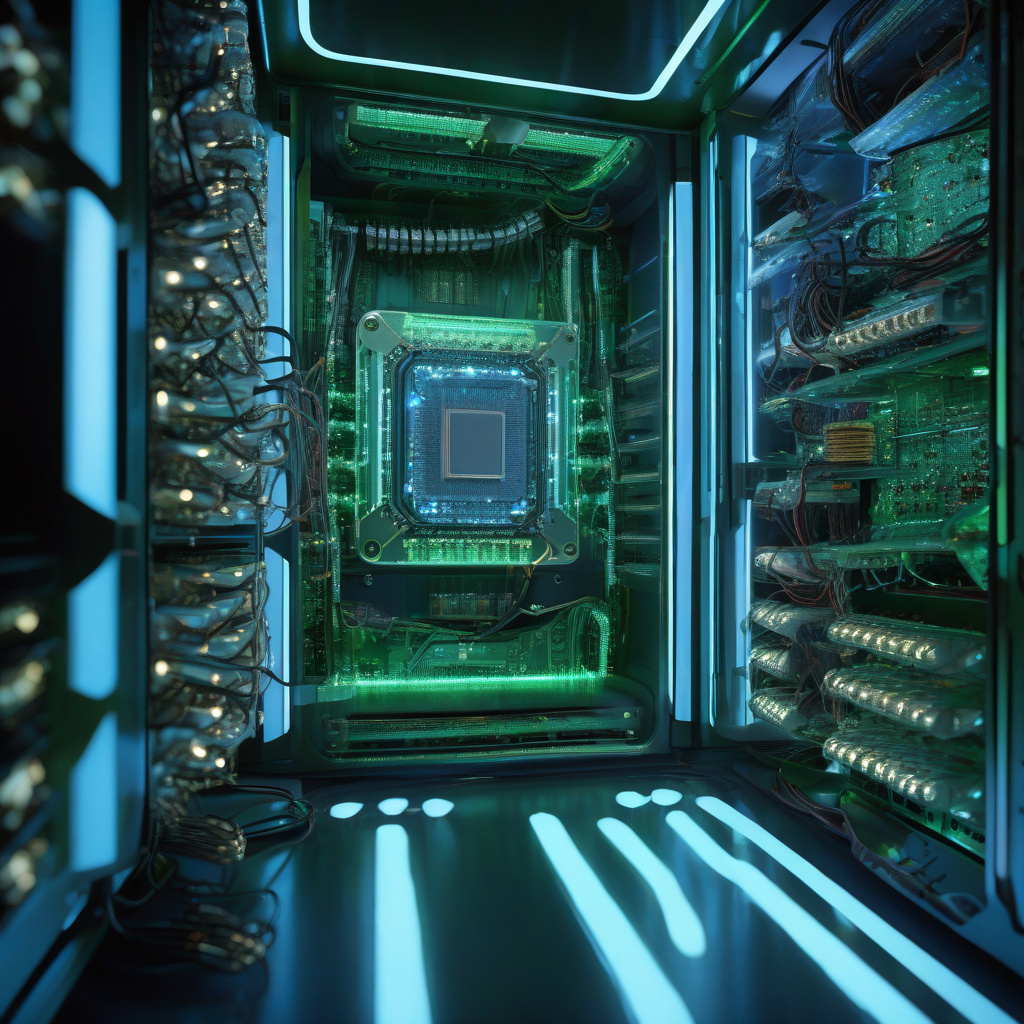New Algorithm Allows Quantum Computers to Self-Correct ‘Noise’ Issues in Real-Time
Quantum researchers have made a significant breakthrough in the field of quantum computing with the development of a pioneering algorithm designed to tackle the persistent challenge of noise in qubits. The new algorithm promises to revolutionize the way quantum computers operate by enabling them to self-correct errors in real-time, paving the way for more reliable and efficient quantum computations.
Noise, or errors in quantum information processing, has long been a major obstacle in the development of practical quantum computers. Qubits, the fundamental units of quantum information, are highly sensitive to external disturbances which can lead to inaccuracies in calculations. Traditional error-correction methods have limitations in addressing these issues, often requiring complex and time-consuming processes that hinder the performance of quantum systems.
The innovative algorithm, developed by a team of quantum researchers, offers a novel approach to mitigating noise in qubits by allowing the quantum computer to detect and correct errors autonomously. By continuously monitoring the state of qubits during computation, the algorithm can identify instances of noise and apply real-time corrections to ensure the accuracy of the results.
One of the key advantages of this self-correcting algorithm is its ability to adapt to changing noise conditions, making it particularly well-suited for the inherently unstable environment of quantum systems. Unlike conventional error-correction techniques that rely on predefined codes and assumptions, the new algorithm dynamically adjusts its error-correction strategy based on the actual noise patterns observed during computation.
In addition to enhancing the reliability of quantum computations, the self-correcting algorithm also has the potential to boost the overall performance of quantum computers. By minimizing the impact of noise on qubits, the algorithm enables quantum systems to achieve higher levels of computational power and efficiency, bringing the long-awaited era of practical quantum computing closer to reality.
The development of this groundbreaking algorithm represents a significant milestone in the advancement of quantum technologies, offering a glimpse into the future capabilities of quantum computers. With the ability to self-correct errors in real-time, quantum systems equipped with this algorithm could unlock new possibilities for solving complex problems in areas such as cryptography, optimization, and material science.
As quantum researchers continue to refine and optimize the algorithm for different quantum hardware platforms, the potential applications of self-correcting quantum computers are boundless. From accelerating drug discovery processes to optimizing supply chain logistics, the impact of this innovation is poised to reshape industries and drive unprecedented advancements in science and technology.
In conclusion, the new algorithm developed by quantum researchers marks a significant leap forward in the quest for reliable and efficient quantum computing. By empowering quantum computers to fix their own noise issues in real-time, this breakthrough paves the way for a future where quantum technologies can unleash their full potential and revolutionize the way we approach complex problems.
#QuantumComputing, #AlgorithmInnovation, #SelfCorrection, #NoiseReduction, #FutureTechRevolution












